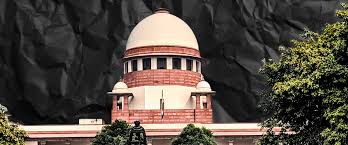CASE COMMENTARY ON SHRI. BODDHISATTWA GAUTAM VS. MS. SUBHRA CHAKRABORTY
AUTHOR – ANJANAH G J, STUDENT AT SASTRA DEEMED TO BE UNIVERSITY
Best Citation – ANJANAH G J, CASE COMMENTARY ON SHRI. BODDHISATTWA GAUTAM VS. MS. SUBHRA CHAKRABORTY, ILE CONSTITUTIONAL REVIEW, 2 (2) of 2023, Pg. 35-39, ISSN – 2583-7168.
ABSTRACT
“Article 21 is the procedural Magna Carta protective of life and liberty.”
~ Justice Iyer
The scope of Article 21[1] of the Constitution is getting wider with judicial interpretation. Article 21 per se speaks about safeguarding life and personal liberty of any person. Article 21 has a wider clause protecting the life beyond mere animal existence. This includes right to live with dignity, to have a meaningful life, right to live in a pollution free society and every other aspect which leads towards a safe life.
Rape[2] is not a crime only against a woman but against the whole society. The crime affects the conscience of the society, physical and mental health of the woman and degrades the honor of the family. Women are treated as the holders of dignity and honor of a family, the stereotypical thought that whatever a female does affects the dignity of the family. ‘She’ always plays a role of a caretaker as mother, sister, wife, daughter or even domestic help and in a latent role, she bears all the responsibilities in the absence of her counterpart. In the present case, the complainant waits with all her faith, takes up all the responsibilities in the course of being a responsible wife while the accused has a malafide intention to leave the complainant, impregnated and also asked to terminate the same with a fake name.
The author in this paper, has tried to explain the case of Bodhisattawa Gautam v. Subhra Chakraborty[3] case which explains the scope of Article 21 and awards an interim compensation as maintenance for the complainant.
Keywords: Article 21, Rape, Pregnancy, Termination, Lawfully Wedded Wife
[1] The Constitution of India, 1949
[2] Indian Penal Code, 1860, Section 375, Act No. 45 of 1860 (India)
